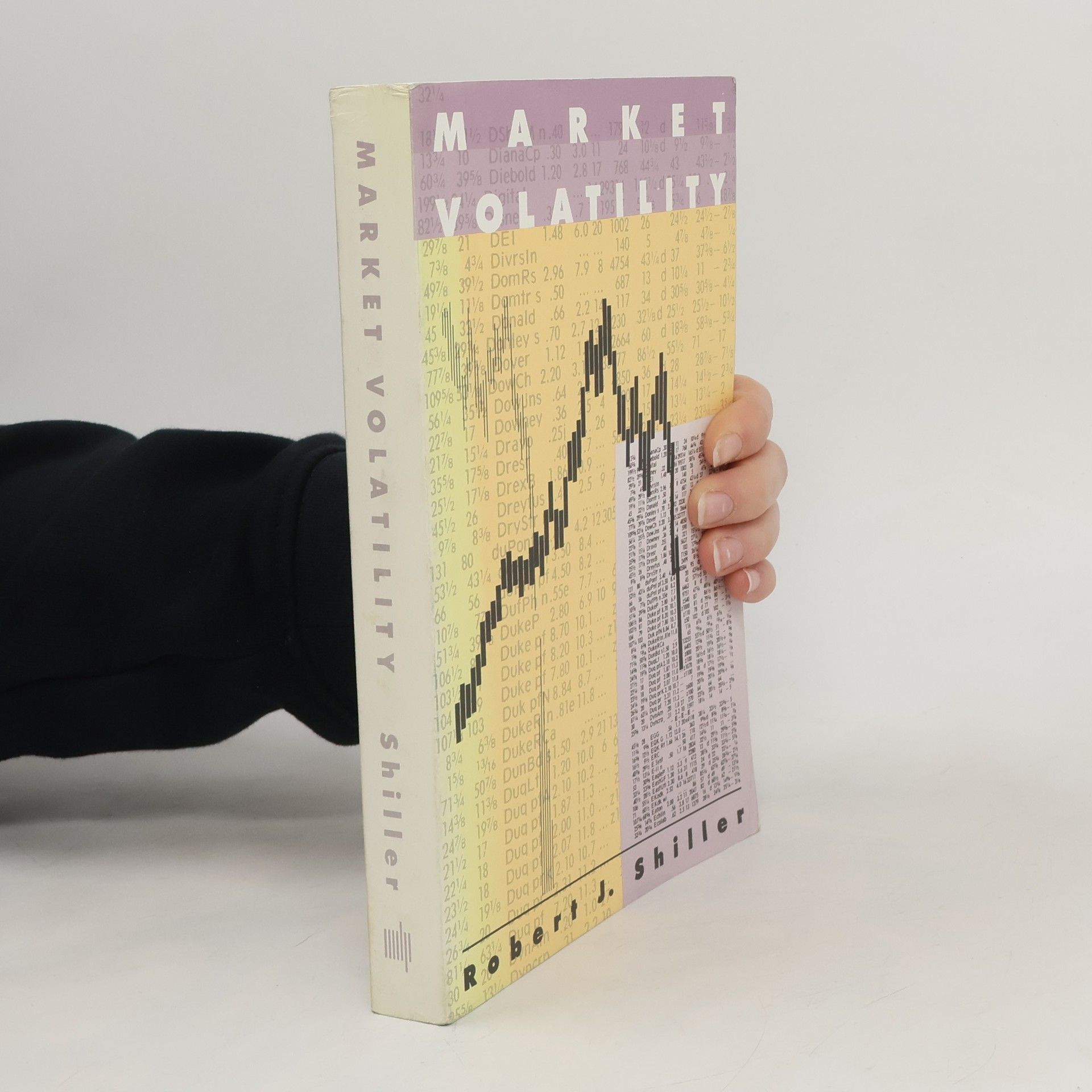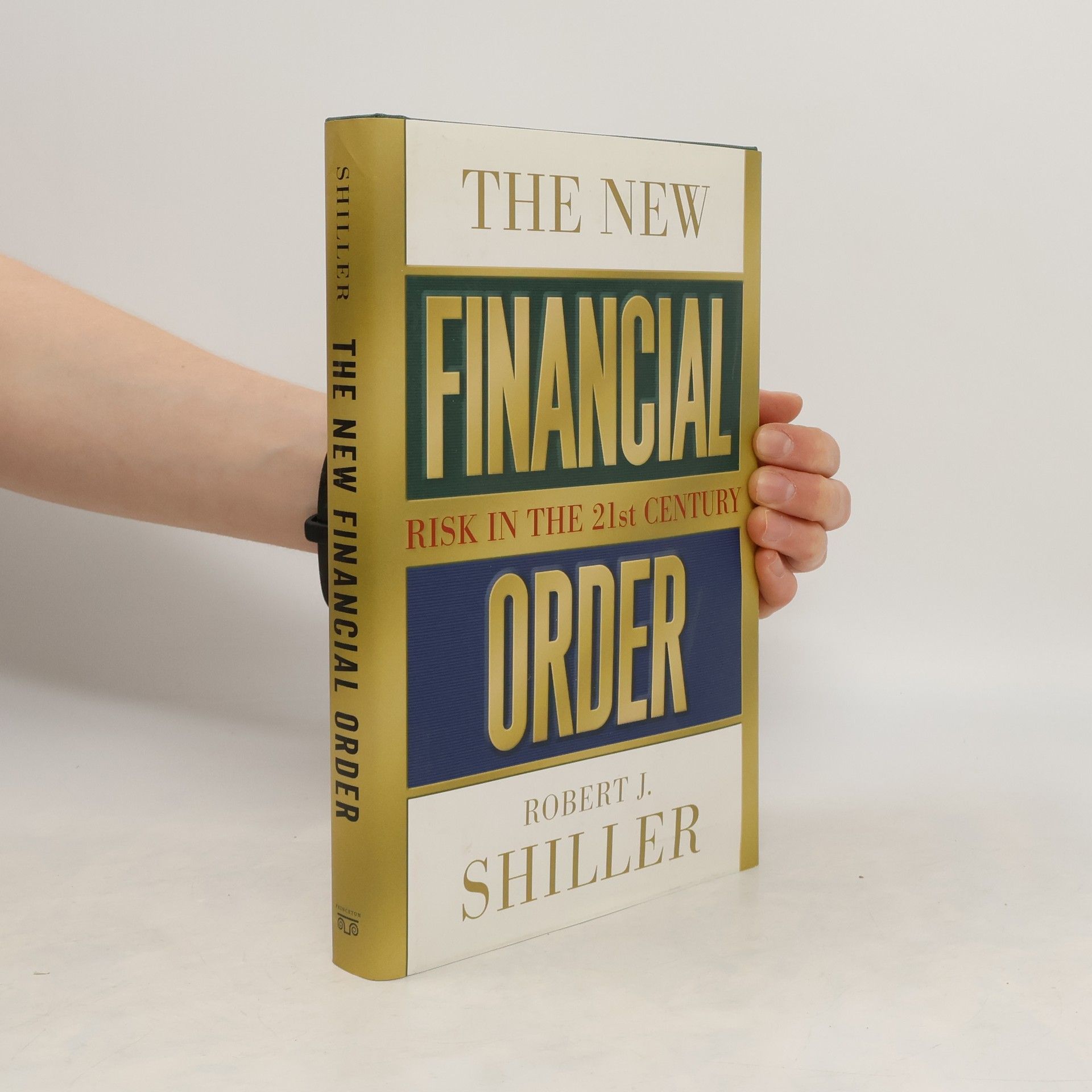Irrationaler Überschwang
- 325bladzijden
- 12 uur lezen
Robert J. Shiller blickt hinter die Fassaden lieb gewonnener Vorstellungen und bestätigt all jene, die die Euphorie an den Börsen der Welt mit wachsendem Unbehagen verfolgen.
Robert Shiller is een Amerikaanse econoom en auteur wiens werk zich verdiept in gedragseconomie en de impact ervan op financiële markten. Zijn geschriften onderzoeken de psychologische factoren die economische beslissingen sturen en hoe deze elementen bijdragen aan marktcrises en -bubbels. Shillers analyses benadrukken de rol van sociale narratieven en irrationeel gedrag bij het vormgeven van economische realiteiten. Zijn doel is om de inherente instabiliteit van financiële systemen te belichten en wegen voor te stellen naar grotere stabiliteit.






Robert J. Shiller blickt hinter die Fassaden lieb gewonnener Vorstellungen und bestätigt all jene, die die Euphorie an den Börsen der Welt mit wachsendem Unbehagen verfolgen.
Examines the impact of a rapidly evolving global economy on the twenty-first century financial world and presents six fundamental principles for using information technology and advanced financial theory to hedge risk.
Acclaimed economists George Akerlof and Robert Shiller argue for the essential role of government in restoring economic confidence in the wake of the global financial crisis. They highlight how psychological forces, termed "animal spirits," have jeopardized national wealth, from blind faith in rising housing prices to declining trust in capital markets. Challenging traditional economic wisdom, Akerlof and Shiller propose a transformative vision that emphasizes the necessity of an active government role in economic policymaking. They revive the concept of animal spirits, originally introduced by John Maynard Keynes, to explain the psychological factors that contributed to the Great Depression and subsequent recovery. Akerlof and Shiller contend that managing these forces requires government intervention, as laissez-faire approaches are insufficient. They explore the pervasive impacts of animal spirits—such as confidence, fear, bad faith, and fairness—on contemporary economic life, critiquing Reaganomics, Thatcherism, and the rational expectations revolution for overlooking these dynamics. This work provides a roadmap for addressing current financial challenges, illustrating how leaders can effectively channel the powerful psychological forces influencing today's global economy.
Argues that finance should be defined not merely as the manipulation of money or the management of risk but as the stewardship of society's assets, and that new ways to rechannel financial creativity to benefit society as a whole are needed.
The reputation of the financial industry could hardly be worse than it is today in the painful aftermath of the 2008 financial crisis. In this book, the author argues that, rather than condemning finance, we need to reclaim it for the common good. It shows how society can once again harness the power of finance for the greater good.
The subprime mortgage crisis has devastated millions and poses a significant threat to the U.S. and global economies. In this insightful work, economist Robert Shiller examines the crisis's origins and proposes bold solutions. He advocates for a comprehensive restructuring of the financial system to restore confidence in home buying and foster greater prosperity in the interconnected global economy. Shiller attributes the crisis to the irrational exuberance that fueled the recent economic bubbles in stocks and housing, leading to excessive credit extension and resulting in foreclosures, bankruptcies, and a global credit crunch. To regain market confidence, he argues for immediate bailouts, specifically targeting low-income victims of subprime deals. For a sustainable solution, Shiller emphasizes the need for leaders to overhaul the financial framework with initiatives designed to prevent future bubbles and mitigate risks. These include improved financial information, simplified legal contracts, expanded risk management markets, home equity insurance, income-linked home loans, and measures to protect consumers from hidden inflation. This compelling book is crucial for understanding the subprime crisis and exploring pathways to recovery.
Economists have traditionally relied on financial aggregates like price-earnings ratios and asset prices for forecasts, often with limited success. Robert Shiller enhances this approach by incorporating insights from mass psychology, leading to the development of behavioral economics. He explores how psychological factors shape economic events and narratives, explaining the emergence and viral spread of popular economic stories and their impact on economic developments. In the preface, Shiller introduces narrative economics, referencing the Great Depression and World War II, and illustrates a contemporary example with the viral rise of Bitcoin. He discusses how narrative economics intersects with other disciplines and draws parallels to epidemiology in understanding how ideas spread. Shiller also examines recurring economic narratives, such as the gold standard, real estate booms, and stock market fluctuations. He concludes with a vision for future research in narrative economics, emphasizing the importance of understanding these narratives in shaping economic realities.
Akerlof and Shiller argue that markets harm as well as help us. As long as there is profit to be made, sellers will systematically exploit our psychological weaknesses and our ignorance through manipulation and deception. Based on the intuitive idea that markets both give and take away, they show how phishing affects everyone, in almost every walk of life. We spend our money up to the limit, and then worry about how to pay the next month's bills. The financial system soars, then crashes. In doing so they explain a paradox: why, at a time when we are better off than ever before in history, all too many of us are leading lives of quiet desperation.
Wie Geschichten die Wirtschaft beeinflussen - ein revolutionärer Erklärungsansatz
„Tech-Aktien steigen immer!“ „Immobilienpreise fallen nie!“ Stimmt das wirklich? Ob wahr oder nicht, solche Narrative, oder einfacher gesagt Geschichten, beeinflussen das Verhalten von Menschen und somit auch die Wirtschaft massiv. Wie entstehen Narrative? Wie gehen sie viral, wie gewinnen sie an Einfluss, wann verlieren sie diesen wieder? Welche Auswirkungen haben sie? Und, last, but not least: Wie lassen sich mit ihnen ökonomische Zusammenhänge und Entwicklungen besser verstehen und vorhersagen? Diese Fragen untersucht Wirtschafts-Nobelpreisträger Robert J. Shiller in seinem vielleicht wichtigsten Buch.